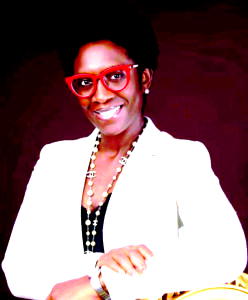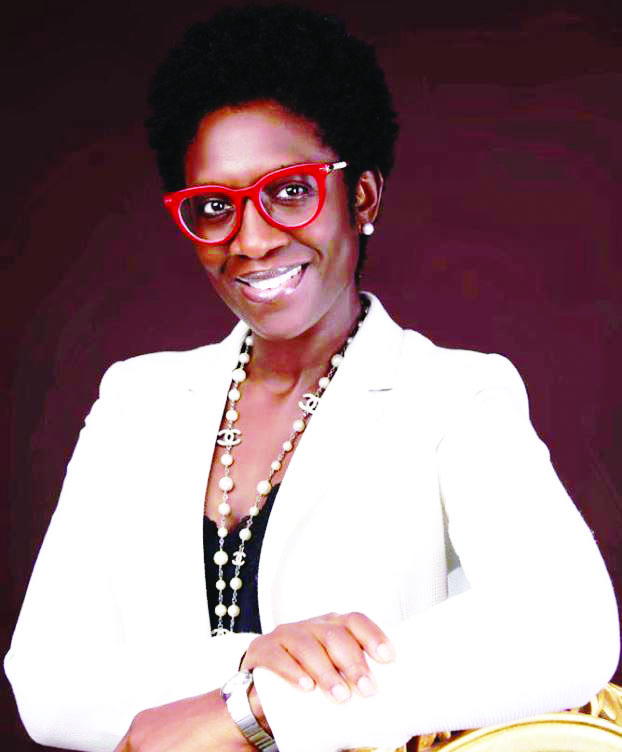

After several years working with Shell International in the Netherlands as an External Relations Executive, Adaobi Oniwinde joined All On to anchor the Policy and Partnerships department, overseeing the company’s communications strategy.
She comes to the role with eight years as a communications specialist for Shell Companies in Nigeria on the regional level; from not so humble beginnings as press office intern at the Clinton White House, where she contributed to speeches for then-First Lady, Hillary Clinton; and AARP where she served as a speechwriter for members of the Board and an Internal Communications Consultant at The World Bank.
Adaobi, as the Image Maker of All On, tells BL how she is connecting women to new markets and opportunities in the Renewable Energy sector.
Tell us about your vision for renewable energy…
Let’s look at it this way. By 2050, Shell’s core business will not be Oil and Gas.
The Energy Transition is in motion all over the world and everyone better be thinking green energy.
READ ALSO: Take advantage of renewable energy, WIMBIZ, All On, urge women
When Shell Group started the discussion about the roadmap for the energy transition, Nigeria was not an afterthought.
There was already a plan for the transition in Nigeria: the plan was All On.
So, the All On idea was a deliberate attempt to speed up the closing of the access-to-energy gap while leaving behind a positive legacy after 60 years in Nigeria.
We are an impact investing firm whose mission is speeding up the closing of the energy access gap, and we do that by investing in off-grid companies.
Our footprint is the Niger Delta, so naturally, All On has a special focus in the delta, but there is no plan to leave out the rest of the country. Our portfolio is over 30 companies strong and by the end of 2021, that number is expected to grow.
Why Niger Delta?
All On is seeded by a company that has a 60-year relationship with the region. Most of Shell’s operations onshore Nigeria are in the Niger Delta so that’s where it made sense to focus our efforts on off-grid communities that are unserved and underserved.
Does it have anything to do with trying to make up for the environmental impact of Shell’s operations?
Shell came to Nigeria in the 1930s. First oil was struck in Oloibiri in the Niger Delta and the business grew from there.
The company’s history for better or worse is linked to the Niger Delta where the headquarters is in Port Harcourt. So, the Niger Delta focus isn’t unusual.
You have talked about the “what”. I want to ask about the “how”. How do you operate?
All On operates with a dynamic four-point delivery approach that combines investment, incubation and market development activities with strategic partners.
These include the All On Hub, responsible for supporting the development and growth of a pipeline of investible, scalable and sustainable businesses.
We deliver through impact investing, enabling finance and by creating an enabling environment for the renewables sector to thrive.
The truth is that in developed countries, there are massive buildings and communities that use solar as the only source of energy.
All On’s offices in Lagos runs completely on solar. The average man on the street does not understand the potential of solar.
That awareness is lacking. People think solar is more expensive than buying diesel for their generators.
On environmental impact, the adverse effects of diesel fumes on our health cannot be imagined.
People need to understand the benefits of renewables which is not limited to solar. Other forms of renewable energy include wind, biomass and hydropower.
Which among the renewable energy sources is cheapest or best?
With government regulation and as the industry grows, other forms of renewables may eventually come into play and people will have options.
Until we get to advanced stages, solar is the main focus of the renewable energy sector in Nigeria.
There is so much potential for plastic waste which is all over the place, but there have to be incentives for recycling.
In other parts of the world, governments subsidize plastic waste collection for example.
There is so much plastic pollution here in Lagos and policy that can address and encourage collection is desperately needed. Maybe in the future, plastic solutions might be cheaper than solar.
I don’t know. What I do know is that we have sunlight in abundance which makes solar most viable.
There are some entrepreneurs that derive energy from rotten foods…
Honestly, there are so many ways to produce energy. That is where awareness is crucial. People do not know the full potential of renewable energy.
We do not influence government, rather, we stand as advocates to bring all these policies to play through engagements.
How successful is All On’s advocacy for the sector?
Well, we’re in good company which helps. The most powerful person in the renewable energy sector on the global arena is a Nigerian woman, Damilola Ogunbiyi.
She used to head the Rural Electrification Agency. She currently heads an organisation called Sustainable Energy for All as an appointee of the UN Secretary General. SE For All is an All On partner.
We also support the Renewable Energy Association of Nigeria (REAN), the leading non-profit industry association founded by stakeholders in the renewable energy sector in Nigeria via funding a Secretariat as well as providing funds to support and strengthen their advocacy work.
Unfortunately, there is no mention of renewable energy in the just passed Petroleum Industry Act which was over 15 years in the making.
There is a recognition that renewables is the future. If oil companies are moving away from oil and gas to renewables, that’s a wake-up call for everyone.
How do we break the dependency on diesel generators?
The diesel generator industry is a strong and formidable one. I think with enough awareness over time about the economic and health benefits of renewable energy, change is inevitable.
If the fish smokers in Makoko recognize the health hazards of using diesel generator sets and switch to solar powered systems, that will eventually have a ripple effect in that community. That’s progress.
For start ups, is there a way to support entrepreneurs?
Like everything else, the cost of solar installations will come down. Parts are mostly imported from China.
The goal is to create a local value chain that includes local manufacturing and assembly plants. There is only one functioning solar assembly plant in Nigeria today.
The company is Auxano Solar Nigeria Limited, an All On investee.
Theirs is a great story and exactly the kind of impact All On was set up to foster. All On first invested in Auxano in 2018 under the All On-USADF Nigeria Off-Grid Energy Challenge for the company’s first plant expansion.
Two years later in 2020, they received a $1.5m investment to expand their plant at a newly constructed location.
What is your particular interest in women?
This is a nascent industry and women are at the fore-front. On a global and local level, women hold top positions in the renewables sector today.
I’m convinced this is a niche women can grab and hold on to because we already have seats at the table. Education generally suffered as a result of the pandemic.
Let’s face it, the ability to learn as we used to, took a hit. While we must still lay emphasis on increasing the numbers of women studying STEM, there are many non-technical opportunities available. Women in rural parts of the country are mounting solar panels.
We need customer service providers, sales representatives, legal, finance among others. The entire value chain is open. I’m partial to communications because that’s my skill.
All the efforts that go into creating an enabling environment for the sector to grow, raising awareness through research and industry data, telling stories of impact to targeted audience etc, even training journalists to be able to accurately report news about the sector are necessary non-technical skills.
All On has started this conversation. How do you intend to bring in other women professionals and take messages to the grassroots?
Going back to our delivery approach, we partner with a broad spectrum of stakeholders including government agencies, donors, industry associations, advocacy association etc.
We are also creating opportunities for collaboration with non-traditional stakeholders like WIMBIZ to promote awareness and use of renewable energy amongst wider audiences.
Through sponsorship of the CEOs Roundtable for example, All On brings together female policy and decision makers from different sectors in Nigerian business.
The post Why women are leading in renewable energy — Adaobi Oniwinde, AllOn appeared first on Vanguard News.
0 Commentaires